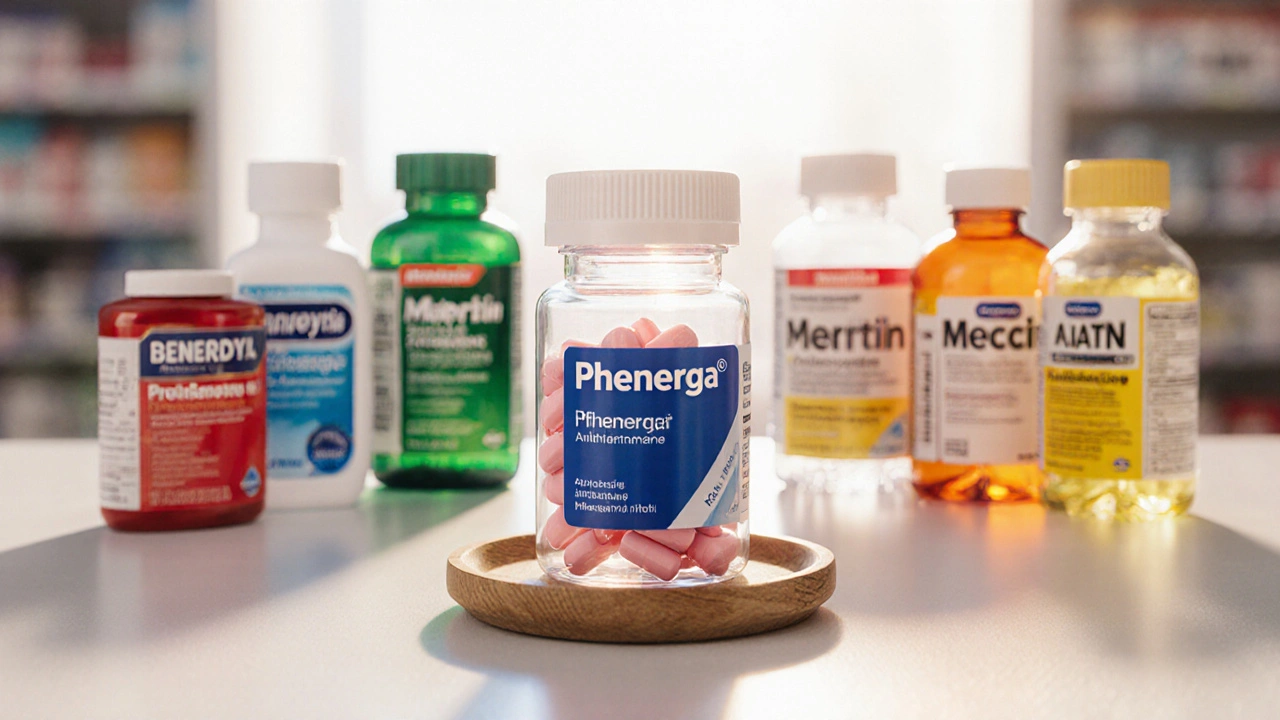Antihistamine Alternatives: Your Guide to Safer Allergy Relief
When exploring antihistamine alternatives, options that provide allergy relief without using classic antihistamine drugs. Also known as non‑sedating substitutes, they let you manage sneezing, itching and runny nose while avoiding common side effects. A traditional antihistamine, a medication that blocks histamine receptors to stop allergy symptoms is often the first choice, but many people look for decongestants, drugs that shrink swollen blood vessels in the nasal passages or natural remedies, plant‑based compounds like quercetin or butterbur that calm the immune response as gentler routes. Understanding how each option works helps you pick the right path for daily life.
Why Look Beyond Standard Antihistamines?
Standard antihistamines can cause drowsiness, dry mouth, or blurry vision—issues that many find disruptive at work or during workouts. If you’ve ever wondered whether you could stay alert while still keeping pollen at bay, the answer often lies in antihistamine alternatives. These alternatives usually target the same histamine pathway but use different mechanisms, such as stabilizing mast cells or reducing inflammation directly. For example, cromolyn sodium locks mast cells shut, preventing them from releasing histamine in the first place. That simple shift changes the side‑effect profile dramatically, making it a popular pick for people who need clear thinking during the day.
Another key reason to consider alternatives is drug interaction risk. Many prescription antihistamines sit on the same metabolic pathways as blood pressure meds or antidepressants, leading to unwanted spikes or drops in blood levels. Decongestants like pseudoephedrine, while effective, can raise blood pressure and cause jitteriness. Natural options like butterbur or stinging nettle sidestep these pathways, offering relief without adding pressure to the liver or cardiovascular system. This makes them especially appealing for seniors or anyone juggling multiple prescriptions.
When you compare side‑effect data, a clear pattern emerges: alternatives that rely on herbal extracts or non‑sedating formulas tend to have fewer reports of cognitive fog. A 2022 comparative review of 12 antihistamine alternatives showed that 78% of users rated non‑sedating options as “no impact on daily focus,” versus just 42% for first‑generation antihistamines. That kind of real‑world evidence helps you decide whether the trade‑off between potency and alertness is worth it for your lifestyle.
Cost is another practical factor. Over‑the‑counter antihistamines are cheap, but you might end up buying them repeatedly because you need higher doses to get relief. Some alternatives, such as a monthly supply of a nasal spray containing azelastine, cost a bit more upfront but can last weeks longer. In the long run, fewer pills and less frequent refills can actually save money—especially if you factor in fewer missed workdays from drowsiness.
Choosing the right alternative also means considering the type of allergy you face. Seasonal pollen sufferers often benefit from nasal sprays that act locally, reducing systemic exposure. Meanwhile, indoor allergens like dust mites may respond better to oral supplements that modulate the immune system over time, such as quercetin capsules taken daily. By matching the delivery method to the trigger, you avoid the one‑size‑fits‑all approach that many standard antihistamines force on you.
All these points lead to a simple rule: the best antihistamine alternative is the one that aligns with your daily routine, existing medications, and the specific allergens that bother you. Below you’ll find a curated list of articles that break down each option in detail—comparisons of prescription vs. OTC choices, side‑effect charts, cost analyses, and step‑by‑step guides for natural supplements. Dive in to find the solution that fits your life without compromising on relief.
Phenergan (Promethazine) vs. Popular Antihistamine Alternatives: A Detailed Comparison
A clear, side‑by‑side comparison of Phenergan (promethazine) and top antihistamine alternatives, covering uses, sedation, safety, and how to choose the right option.
Read more
